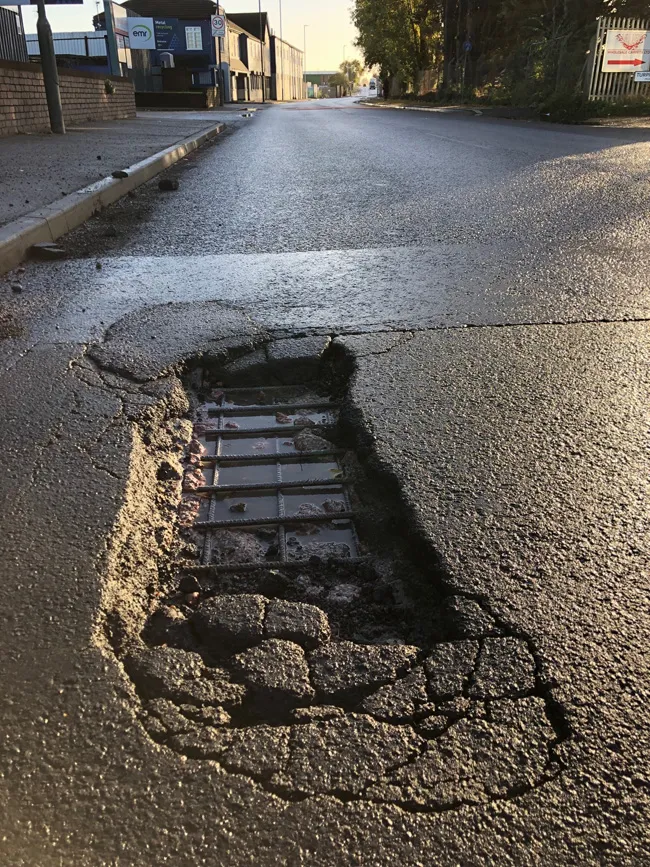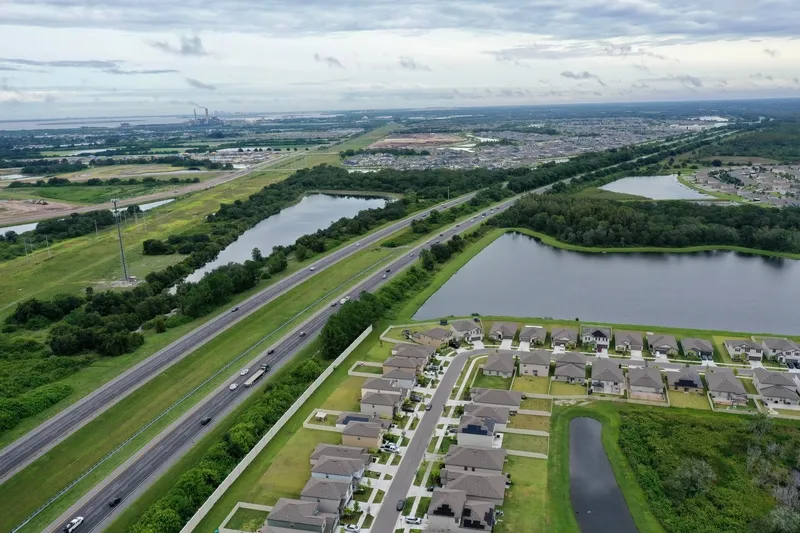
Indications last year of an improving condition for the UK’s road maintenance have not been sustained, with an average 16% drop in highway maintenance budgets.
This year there are 11,651km (7,240 miles) fewer roads reported to be in “good” structural condition and with 15 years or more of life remaining, according to the Annual Local Authority Road Maintenance (ALARM) survey.
There are also 1,770km (1,100 miles) more of roads classed as “poor” with less than five years’ life remaining, notes the 25th annual survey published by the UK’s Asphalt Industry Alliance. The AIA represents companies producing raw materials for asphalting roads.
Meanwhile, there is a continued increase in the number classed as “adequate” with between 5-15 years’ life remaining, “suggesting an ongoing slide towards mediocrity”, says the survey.
Average highway maintenance budgets are down 16%, to €22.2 million (£20.7 million) per local authority, versus around €26.3 million (£24.5 million) for 2018/19.
The survey says that an estimated one-time catch-up cost of just over €11.8 billion (£11 billion) is needed to get roads back into a reasonable, steady state. This is up from almost €10.7 billion (£10 billion) reported in 2019. Even so, it would take around 11 years to clear the maintenance backlog if local authorities had the funding and resources available to do the work.
“Highway maintenance budgets have dropped back to where they were two years ago,” said Rick Green, chair of the AIA. “Over the past 25 years we have repeatedly seen this pattern of short-term cash injections to stem accelerating decline, only to be followed by further years of underfunding. This stop-start approach has been wasteful and… contributed to a rising bill to put things right.”
He noted that the €26.3 billion (£2.5 billion) extra funding over the next five years announced in the Budget will certainly be welcomed by hard-pressed local authority highway teams.
“However, £500 million [€535.3 million] extra a year divided across English local authorities is a long way off the one-time catch-up cost of £11.14 billion [€11.95 billion] that ALARM 2020 indicates is needed to bring our local roads across England, London and Wales up to a level from which they can be maintained cost effectively going forward,” he said.
“What’s needed is additional and sustained investment to help underpin the Government’s levelling-up strategy and social cohesion goals, as well as complement its ambitions for more sustainable modes of transport.
Green also said that this year’s ALARM survey is published at a time of unprecedented challenges due to the spread of the COVID-19 virus, and understandably, the country’s resources will need to be prioritised accordingly. Looking ahead, ALARM 2020’s findings support the view that a sustainably-funded, well-maintained local road network will need to be part of securing recovery and regrowth.
The 2020 ALARM survey was completed by 67% of local authorities responsible for roads in England and Wales and was carried out between December 2019 and February this year. Findings relate to roads maintained by local authorities only and excludes roads designated part of the UK’s Strategic Road Network which is managed by Highways England, a standalone government company.
The full ALARM survey is available to download at www.asphaltuk.org.








